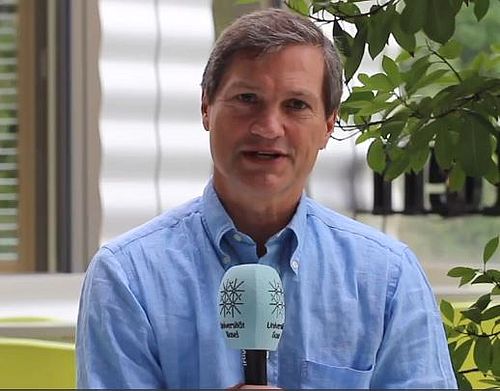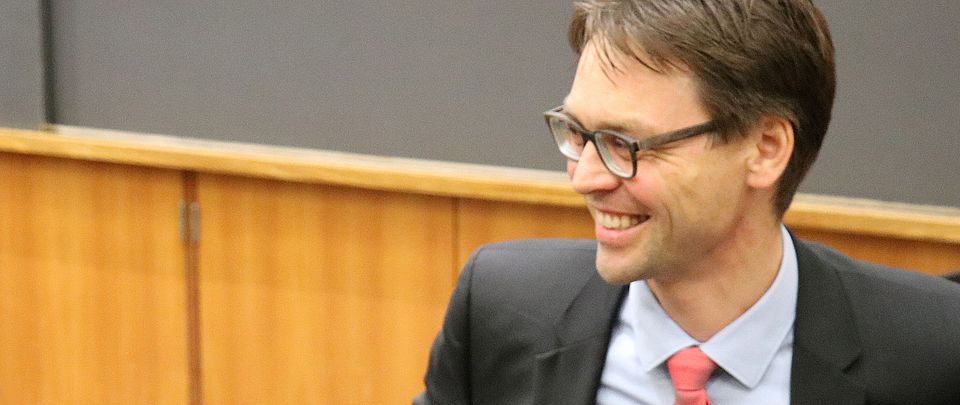Competitive Strategy
Competitive Strategy is concerned with managing the development and competitive position of the business enterprise in order to ensure its survival and long-term success. Every firm must create and sustain a competitive advantage if it is to survive and prosper. This course provides frameworks, tools and concepts to help students analyze and understand the creation and sustainability of competitive advantage.
Political, economic, demographic and social environments differ and evolve across industries. Industries differ in the extent to which they provide opportunities for sustained profitability. Industries also evolve over time, providing firms with continuously changing opportunities and threats. The first section of the course examines the external (industry) environment.
While industry analysis provides firms insights into what they must do to succeed, it does not shed much light on what they can do. Resource and capability analysis provides an insight into firms’ strengths and weaknesses (as they relate to the external environment). An understanding of internal strengths enables firms to fully exploit and build their capabilities to compete successfully, while an understanding of internal weaknesses suggests recommendations for improvment. The second section of the course focuses examines the internal environment.
Firms in an industry jockey for position through their actions and interactions. Every firm seeks to obtain a unique and sustainable competitive position through an appropriate configuration of its assets and products in relation to the external environment in order to generate superior value for its customers. The third section of the course examines competitive advantage and competitive positioning.
Finally, firms need to understand their nonmarket environments, or the external forces that lie “beyond the market.” Laws, regulations, institutions, and societal norms structure and shape market competition, and fovernments, regulators, courts, the media, non-governmental organizations, and activists all affect how firms compete and whether certain resources and capabilities are valuable. The fourth section of the course offers a brief introduction of the nonmarket environment.
Course materials consist of journal articles, notes, and cases. Journal articles represent some of the most popular Harvard Business Review articles on strategy and strategic concepts, and are designated HBS in the syllabus. Journal articles require registration and purchase and are available at the HBS course. The cost for the HBS course material is roughly $40.
Monday, 27 June 2022: 9:30 - 12:00
Tuesday, 28 June 2022: 9:30 - 12:00
Wednesday, 29 June 2022: 9:30 - 12:00
Thursday, 30 June 2022: 9:30 - 12:00
Monday, 4 July 2022: 9:30 - 12:00
Tuesday, 5 July 2022: 9:30 - 12:00
Wednesday, 6 July 2022: 9:30 - 12:00
Thursday, 7 July 2022: 9:30 - 12:00
Solid understanding of business and economics on the BA level.
The following lectures are recommended as prerequisites:
- Theory of the Firm (62651)
- Product Management (Produktmanagement, 10653)
- Advanced International Trade and Business (10625).
Especially recommended for students with a major in "International Business, Trade and the Environment”.
Attendance and good preparation are prerequisites for being a valuable participant in the class. You are expected to attend every class.
Grading will be based on your performance in class participation, two case write-up submissions, and a final exam. The grading weights are as follows:
Class participation: 30%
Case write-ups (2): 30%
Final exam: 40%.
The final exam will be administered at the end of the course and take place on 12 July 2022, 16:15.
This course will be counted in the following degree programs in the respective modules:
Master's Studies: Business and Economics (Start of studies before 01.08.2021)
Module: Specialization Module: Marketing and Strategic Management
Master's Studies: Business and Economics (Studium Generalis)
Module: Specific Electives
Master's Studies: Business and Economics (Specialization: Data Science and Compuational Economics)
Module: General Electives in Data Science and Computational Economics
Master's Studies: Business and Economics (Specialization: Finance, Controlling and Banking)
Module: General Electives in Finance, Controlling and Banking
Master's Studies: Business and Economics (Specialization: International Business, Trade, and the Environment) - starting in fall 2022
Module: Specific Electives in International Business, Trade, and the Environment
Master's Studies: Business and Economics (Specialization: International Trade, Growth and the Environment)
Module: Specific Electives in International Trade, Growth and the Environment
Master's Studies: Business and Economics (Specialization: Labor Economics, Human Resources and Organization)
Module: Specific Electives in Labor Economics, Human Resources and Organization
Master's Studies: Business and Economics (Specialization: Marketing and Strategic Management)
Module: Core Courses in Marketing and Strategic Management
Master's Studies: Business and Economics (Specialization: Monetary Economics and Financial Markets)
Module: General Electives in Monetary Economics and Financial Markets
Master's Studies: Business and Technology
Module: Business Field: Marketing
Module: Business Field: Strategy and Organization
Master's Studies: Economics - starting in fall 2022
Module: General Electives in Economics
Master's Studies: Economics and Public Policy
Module: General Electives in Economics and Public Policy
Wirtschaftswissenschaftliche Fakultät
News
Events
Ort: Zoom
Veranstalter:
CAS Sustainable Real Estate
Digital Info Session | CAS Sustainable Real Estate
Do you have a passion for advancing sustainability where it truly counts? Unlock your potential to transform real estate investment for a sustainable future with our “CAS Sustainable Real Estate” at the University of Basel.Ort: Zoom
Veranstalter:
MBA Finance | Executive Master in Finance (MiF)
Digital Info Session | MBA Finance | Executive Master in Finance (MiF)
🚨 Financial professionals, take notice 👇🏼Ort: WWZ Auditorium
Basel Capital Market Days 2026 | 5. Ausgabe
Anlegen in Zeiten geopolitischer UnsicherheitOrt: Zoom
Veranstalter:
MBA Marketing and Business Development
Digitaler Infoabend des MBA Marketing and Business Development
Schenk dir selbst Zukunft – mit dem MBA der Universität BaselWWZnewsletter
People
Research Centers
Die Wirtschaftswissenschaftliche Fakultät
Gegründet 1460 ist die Universität Basel die älteste Hochschule der Schweiz. Die Wirtschaftswissenschaftliche Fakultät ist die zweitjüngste der insgesamt sieben Fakultäten der Universität Basel und wurde 1995 etabliert. Das Fach Ökonomie konnte zu diesem Zeitpunkt jedoch schon auf eine fast 150-jährige Tradition in Basel zurückblicken.
WWZ Forum
Das WWZ Forum koordiniert und betreut die durch den Förderverein unterstützten Forschungsprojekte, pflegt den Kontakt mit bestehenden und zukünftigen Sponsoren und ist für den Wissenstransfer der in der Forschung erarbeiteten Inhalte verantwortlich.
Quick Links
Social Media
Quick Links
Social Media













































